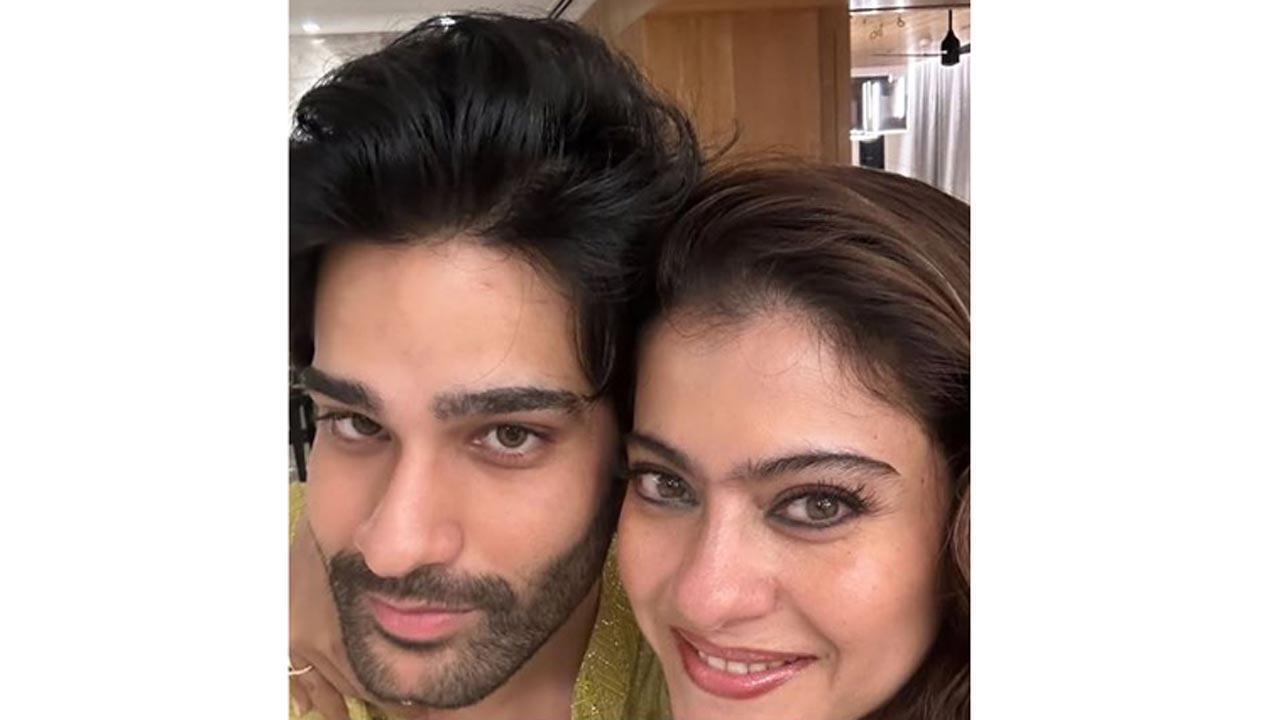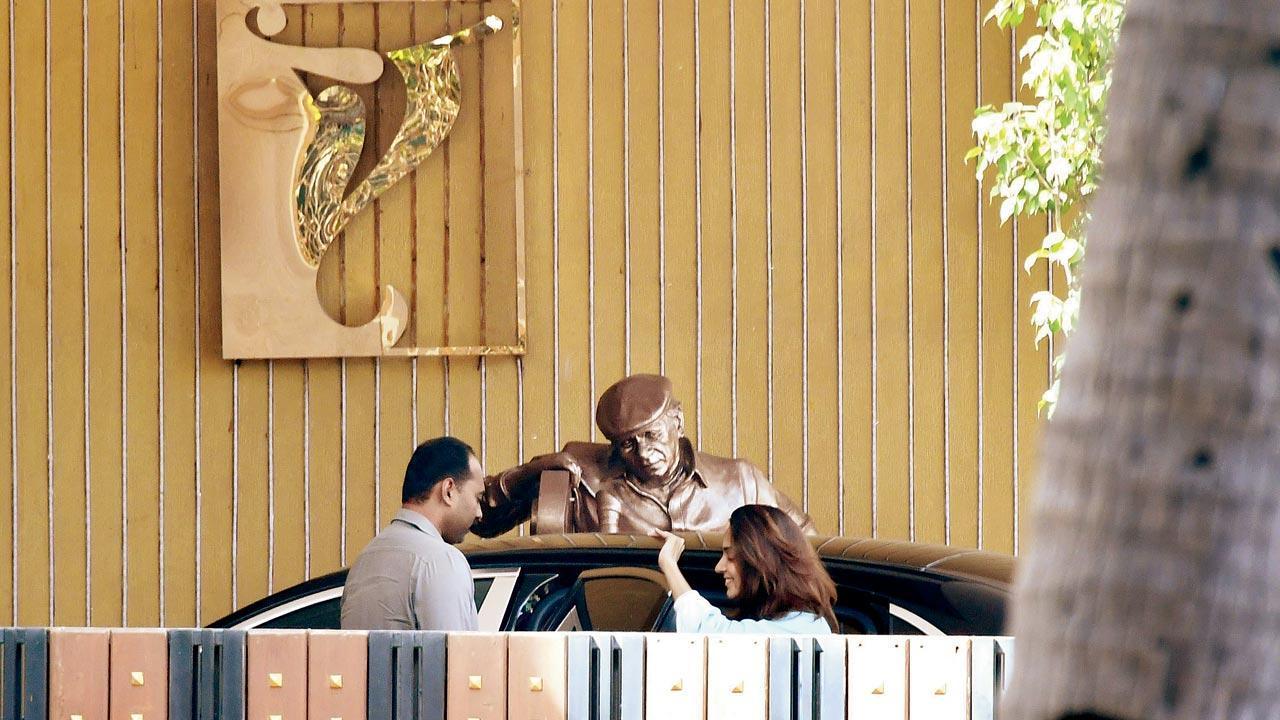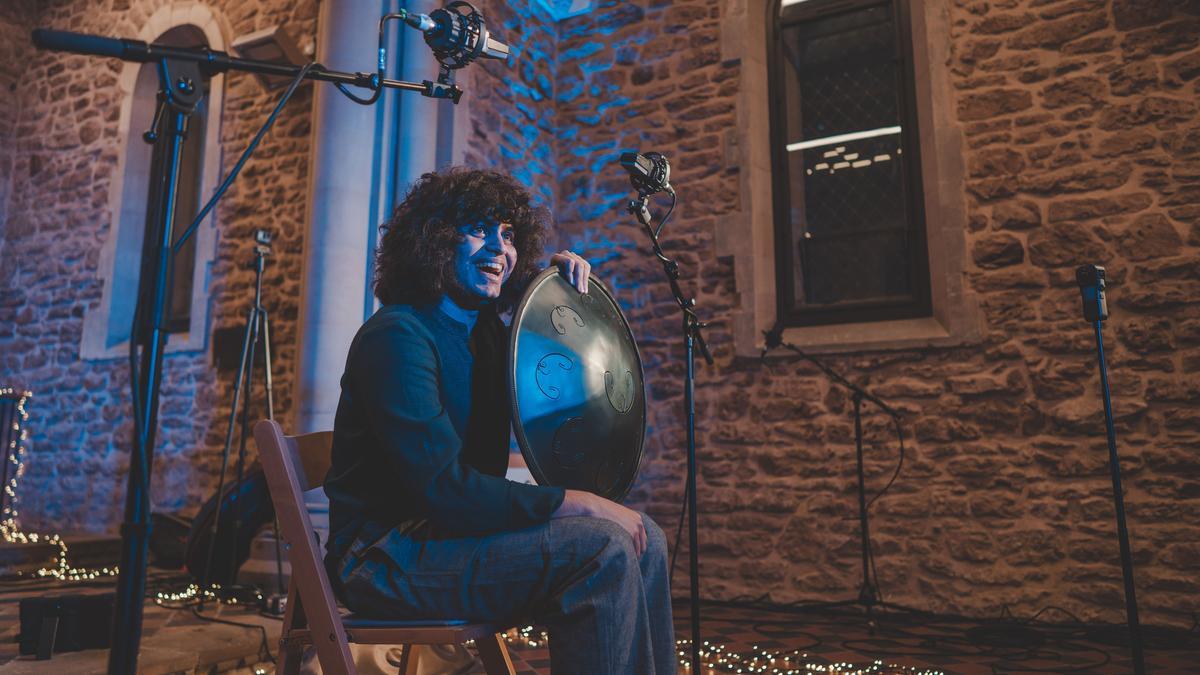
For queers, differently abled, neurodivergent and other outliers in society, there’s real agony in being refused to be seen, heard or understood for their individual choices and who they are born as. Activism on these fronts, especially in Indian society, has been to make the social forces see sense in what they argue against and look beyond the many layers of social conditioning. In his fourth directorial,Kaadhal Enbadhu Podhu Udamai (KEPU), Jayaprakash Radhakrishnan constructs a microcosm of society to demonstrate the same. He takes us into an upper-class home, shell-shocked by the revelation of the daughter’s homosexuality, to point out the ironies, flaws, and fallacies in cishet-normative arguments. Characters, their backstories, situations and revelations all appear designed for the same purpose.
Take, for instance, the character of Lakshmi (Rohini), a motivational speaker and advocate of feminism, individuality and choice. Through a long, tense sequence set around a dining table, Lakshmi tussles with the realisation that her daughter Sam (Lijomol Jose) is in a relationship with a woman named Nandhini (Anusha Prabhu). How Jayaprakash captures the cataclysmic turmoil in Lakshmi is simply outstanding. The same woman who hesitated to invite her estranged husband, Devaraj (Vineeth), to meet her daughter’s prospective ‘groom’, desperately seeks help from him after Sam reveals her secret.
Through Lakshmi, Jayaprakash questions the irony in parents who claim to “love unconditionally” and the hypocrisy of those whose progressive preachings come with clauses. In one of the initial scenes, Mary (Deepa), the housemaid, tells Lakshmi of how her drunk husband thrashed their daughter black and blue, and how she had to reprimand him. Lakshmi believes he deserves more. It’s quite something to see how alcohol and physical mistreatment are revisited to denote a poignant thought. The very existence of Mary is to solve this purpose, apart from informing them that homosexuality isn’t a new-gen upper-class ‘fad’ and that love isn’t conditional.
A still from ‘Kaadhal Enbadhu Podhu Udamai’
| Photo Credit:
Saregama Tamil/YouTube
The limited number of characters also helps Jayaprakash weave in nuanced takes on human relationships, with many social conditionings at play. Ravindran (Kalesh Ramanand), Sam’s best friend who was in love with her, confesses that his friendship with her would have been an ‘act’ to get her back if not for her sexual identity. It’s also interesting to see how Ravindran, much like Sam, has to other the queers as “them” and “us” to teach empathy. Devaraj too puts his contradictions to the front when he says that it’s okay to show off as being progressive and that he cannot apply the same when it comes to his daughter.
It is safe to assume that Jayaprakash has factored in inputs from queer individuals in writing KEPU (Notably, queer activist, actor and filmmaker Malini Jeevarathinam — who acted as a lesbian woman in Prime Video’s Inspector Rishi — has served as a Content Advisor). There are enough tell-tale signs of Sam and Nandhini’s relationship being at a premature stage emotionally; because holding all queer relationships to a standard of maturity is an unfair pressure, isn’t it? Nandhini appears more impulsive and emotionally confining. Whenever an unfavourable situation arises, she first holds Sam responsible for fixing it, questioning her faith in their love.
The niggles with KEPU begin after the conflict is established. Sure, the uncomplicated plotline aids the screenplay, and Jayaprakash’s attempt to hold the lens on the flaws of the cishet parents is admirable. However, there’s hardly any space to understand Sam and Nandhini beyond their reactions to the situation or to know who they are as individuals. Largely, the two women become lecturers educating a couple of cis-hets, and even how they dealt with situations in the past reveals only their relationship with their queer identities and men. So, like in the instance where Nandhini speaks about her life, you wonder why she rushes through the details of her parents, not pausing to express how she feels about her strained relationship with them. With the runtime being under two hours, more scenes featuring Sam and Nandhini, together or in isolation, could have helped make them feel more rounded.
Having seen Jayaprakash’s Thalaikoothal, in which he wonderfully showcased his command, KEPU feels diluted and didactic in its pursuit. The many counterpoints for the regular queerphobic arguments would have been accentuated had he opted to show us the emotional landscapes of these queer characters more imaginatively; the most creative addition here are the sequences featuring the two women on a tranquil beach.
That said, Kaadhal Enbadhu Podhu Udamai is an admirable step forward in an industry where queer themes remain nascent at best. Perhaps queer love on Tamil screens needs to have its own evolution. Perhaps when more avenues for queer dating and queer friendships open up, cinema might reflect within, as it did with heterosexual relationships. For now, what needs to be said is this — love is for all — and Kaadhal Enbadhu Podhu Udamai certainly tells it out loud.
Kaadhal Enbadhu Podhu Udamai is currently running in theatres
Published – February 14, 2025 06:16 pm IST
Tamil cinema
/
Indian cinema
/
LGBT










